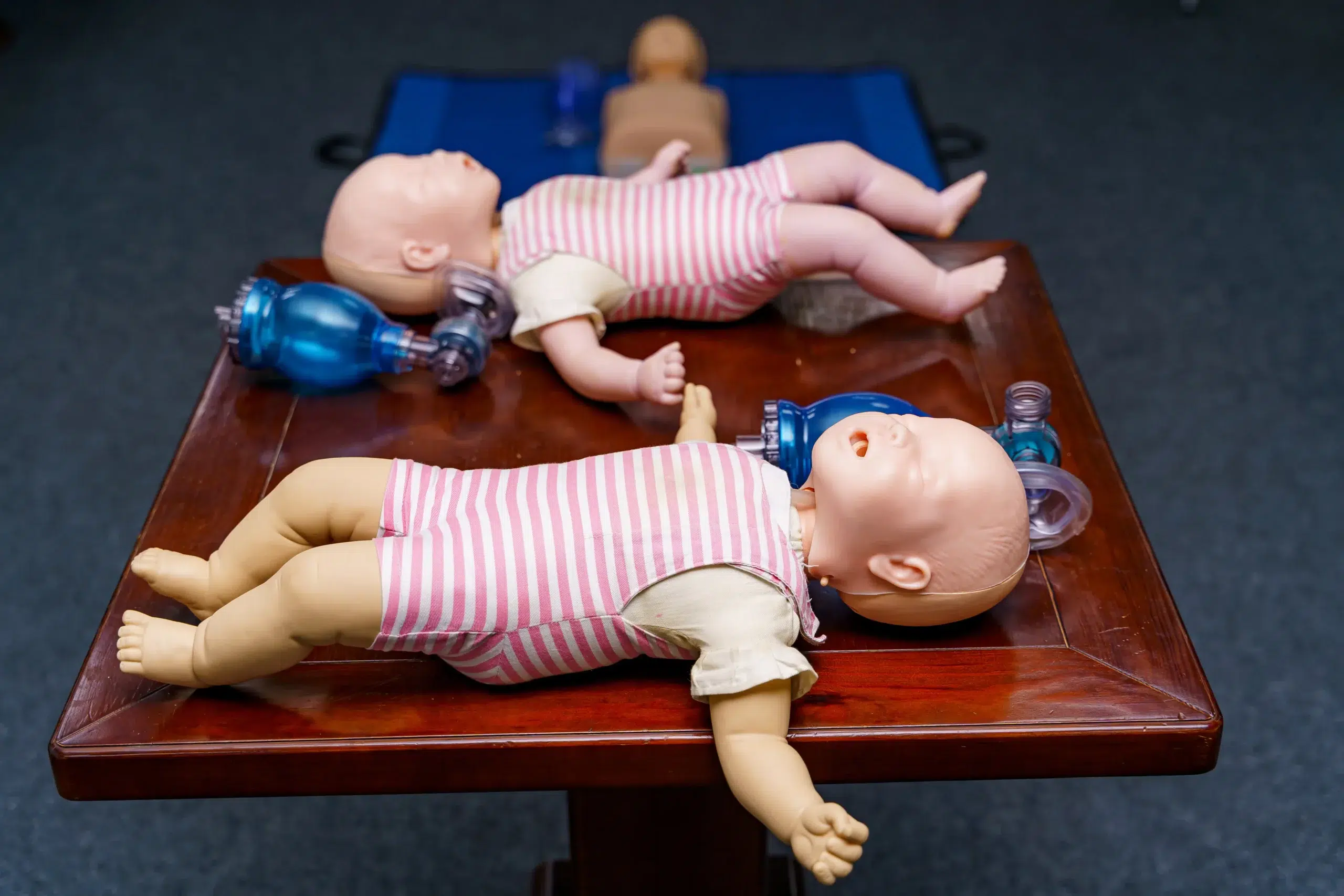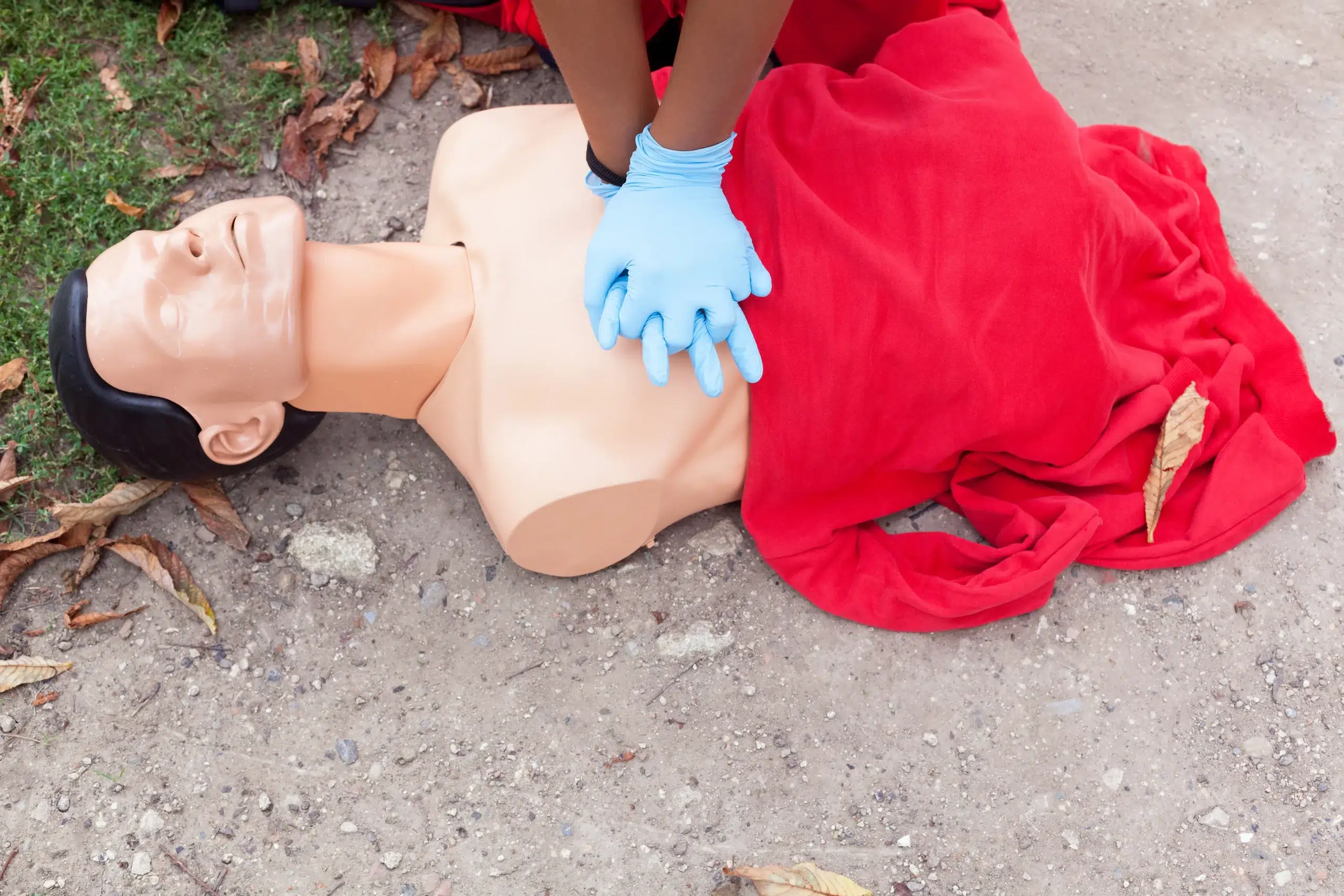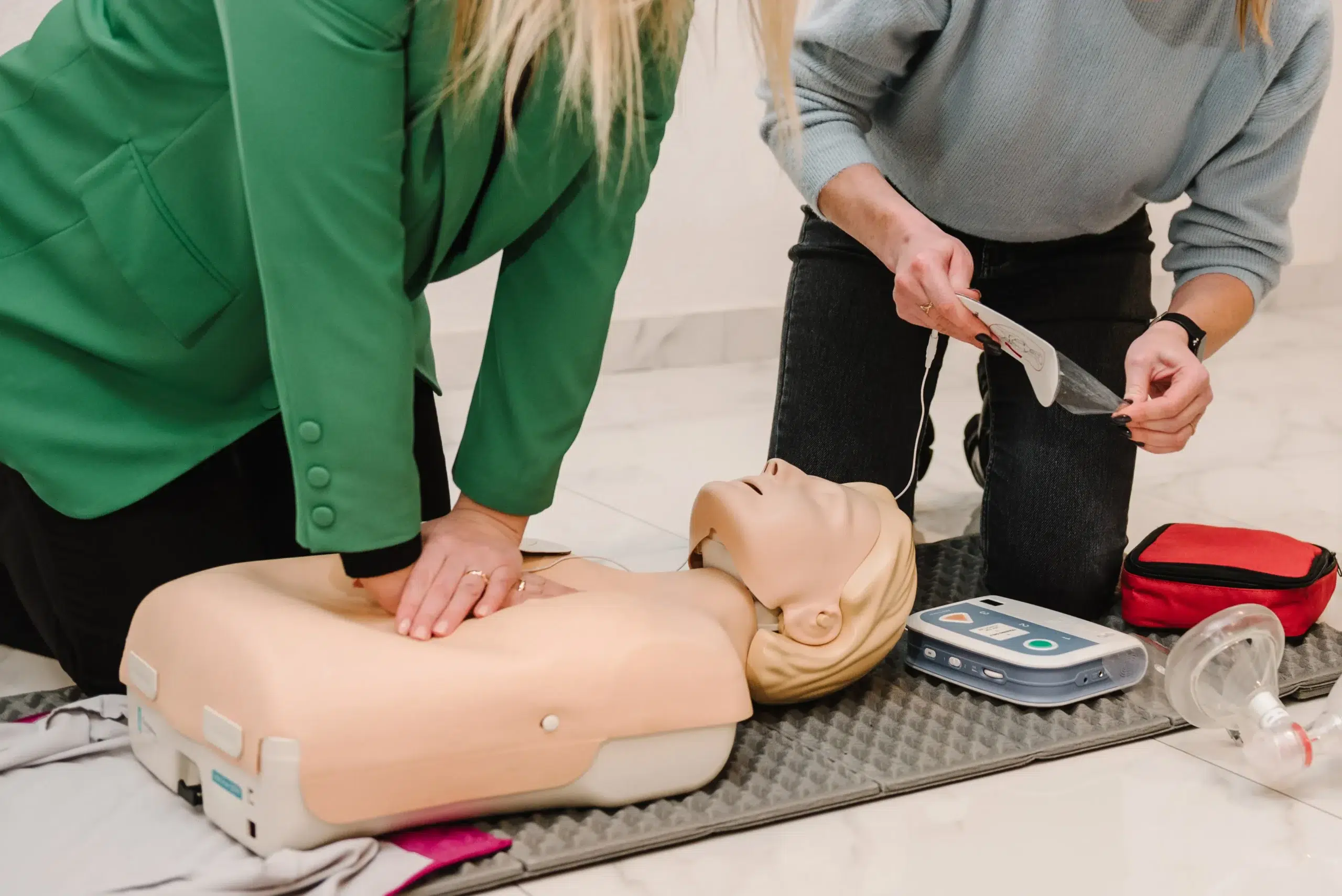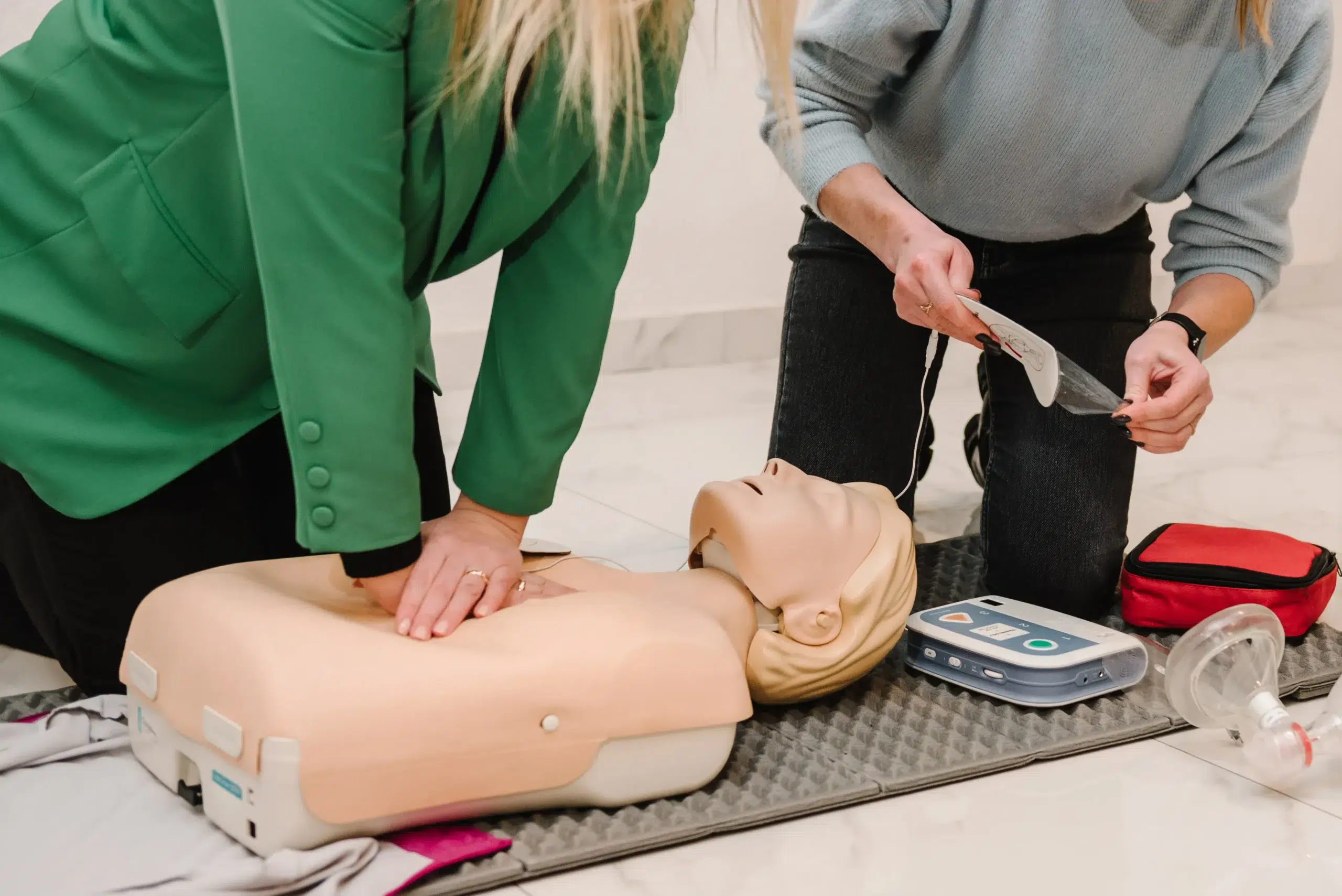Working in healthcare, especially with children, means being prepared for anything. From routine checkups to unexpected emergencies, you need the skills to respond effectively. That’s where Pediatric Advanced Life Support (PALS) training comes in. This specialized certification equips healthcare providers like you with the knowledge and practical experience to handle critical situations involving infants and children. If you’re a healthcare professional in Sacramento, finding a reliable PALS certification course is easier than you think. This article explores the importance of PALS, who benefits from this training, where to find pediatric advanced life support in Sacramento, and what to expect from the certification process. We’ll also discuss the value of PALS certification for your career and how to stay up-to-date with the latest protocols.
Key Takeaways
- PALS certification equips healthcare professionals with life-saving pediatric emergency skills. From recognizing early signs of distress to providing advanced life support, PALS training empowers confident and competent responses, leading to better patient outcomes.
- Finding the right PALS course requires careful consideration. Seek a reputable provider with a comprehensive, AHA-aligned curriculum, hands-on practice, and experienced instructors. Asking questions about course content, format, and instructor qualifications ensures the best fit for your needs.
- Maintaining your PALS certification demonstrates ongoing commitment to excellence. Stay informed about the latest protocols and renewal requirements. Explore convenient renewal options, including in-person and blended learning formats, to keep your skills current and your certification active.
What is PALS?
PALS Definition and Purpose
Pediatric Advanced Life Support (PALS) provides a framework for healthcare providers responding to life-threatening emergencies in children and infants. This specialized training equips professionals with the skills to manage respiratory distress, cardiac arrest, and other critical situations. Taking a PALS certification course gives you the knowledge and practical experience to make quick, informed decisions in emergencies.
Importance of PALS in Emergencies
PALS training is crucial for improving the care of young patients. It increases confidence and competence in managing pediatric emergencies, allowing you to handle these high-pressure situations. Certified PALS providers are prepared to act immediately, ensuring the safety of those around them and providing the best possible outcome for the child. It’s an essential qualification for anyone working with infants and children in a healthcare setting.
Who Needs PALS Certification?
PALS Certification is crucial for healthcare providers involved in the emergency care of infants and children. This includes professionals like doctors, nurses, paramedics, and other medical personnel working in settings such as hospitals, clinics, and critical care units. Anyone regularly involved in pediatric emergencies should consider obtaining PALS Certification. Early intervention is key in these situations, and PALS training equips you with the skills to provide prompt and effective care. For those in the Sacramento area, you can find PALS courses in Sacramento through various providers.
Who Should Take PALS Training?
PALS training is specifically designed for healthcare professionals working in pediatric care. It’s a specialized program that offers numerous benefits for improving children’s health outcomes during emergencies. While physicians, nurses, and paramedics often seek this training, it’s also valuable for respiratory therapists, emergency medical technicians, and other medical professionals who might encounter pediatric emergencies. If your career involves the potential for pediatric emergencies, PALS training is a worthwhile investment. Learn more about the specific benefits of PALS training.
Career Benefits of PALS Certification
Earning your PALS certification demonstrates a commitment to providing high-quality pediatric care. It enhances your confidence and competence in managing pediatric emergencies, allowing you to react swiftly and effectively under pressure. PALS certification can open doors to positions requiring specialized pediatric care skills, giving you a competitive edge in the job market. It also empowers you to deliver life-saving care when it matters most, making a real difference in the lives of children and their families. Explore more about how PALS certification can advance your career.
Top PALS Training Providers in Sacramento
Finding the right Pediatric Advanced Life Support (PALS) course is crucial for healthcare providers. Here are some respected training centers in the Sacramento area:
Citrus Heights CPR Classes
Citrus Heights CPR Classes offers a comprehensive PALS certification course designed to equip healthcare professionals with the skills to manage pediatric emergencies. They focus on practical training and offer various schedules to accommodate busy professionals. Learn more about their PALS and BLS courses.
NorCal CPR Training Classes
NorCal Emergency Medical Training, an authorized American Heart Association Training Center, provides PALS training with an emphasis on hands-on learning and real-world scenarios. They are known for their experienced instructors and comprehensive curriculum.
Sacramento CPR Classes
Sacramento CPR Classes offers PALS training that blends online learning with in-person skills sessions. This flexible approach allows participants to learn at their own pace and apply their knowledge in a practical setting. Explore their website to learn more about Sacramento CPR classes.
Dignity Health Sacramento Hospitals
Dignity Health provides a PALS course specifically designed for healthcare providers working with children. Their training includes hands-on practice with CPR/AED and various pediatric emergency scenarios. Find additional details about their PALS training.
American Heart Association Training Centers
The American Heart Association offers PALS courses in Sacramento, ensuring healthcare providers have access to the latest guidelines and protocols for pediatric emergency care. You can locate a PALS course near you through their website.
What to Expect in a PALS Course
This section outlines what you can expect during a Pediatric Advanced Life Support (PALS) course, from the course structure and key topics covered to the hands-on skills practice and blended learning options. Understanding these elements will help you prepare for your training and make the most of the experience.
Course Length and Format
PALS courses are typically two days long, totaling approximately 20 hours. This timeframe allows for in-depth instruction and ample opportunity for hands-on practice. The course is designed for healthcare providers involved in the emergency care of infants and children, so expect a fast-paced, information-rich learning environment. Check with your chosen PALS provider for their specific schedule.
Key Training Topics
PALS training aims to significantly improve the treatment of children during medical emergencies. The curriculum covers essential topics, including high-quality CPR for children and infants. You’ll learn to recognize the early signs of shock and quickly determine which patients require immediate care. These skills are critical for effective intervention in pediatric emergencies. For more details on specific course content, explore PALS resources.
Skills Practice and Simulations
A core component of PALS training involves hands-on practice and simulated pediatric emergencies. These simulations reinforce the systematic approach to pediatric assessment, allowing you to apply your knowledge in realistic scenarios. You’ll engage in practice with CPR/AED and work through various cardiac, respiratory, and shock scenarios. This practical experience builds confidence and competence in managing pediatric emergencies. Learn more about this simulation-based learning.
Blended Learning
Many PALS courses now offer blended learning options, combining online modules with in-person skills sessions. This flexible approach allows you to complete some coursework at your own pace before attending the hands-on portion of the training. This blended learning format offers flexibility for busy professionals. The American Heart Association’s Resuscitation Quality Improvement (RQI) program is another popular blended learning option for healthcare professionals seeking BLS, ACLS, and PALS certifications. RQI programs offer a modern approach to certification.
PALS Prerequisites and Enrollment
Before you jump into a Pediatric Advanced Life Support (PALS) course, it’s helpful to understand the prerequisites and how to enroll. Knowing the requirements beforehand lets you focus on learning these lifesaving skills.
BLS Certification Requirement
A current Basic Life Support (BLS) certification for healthcare providers is a key prerequisite for PALS certification. PALS builds upon the foundational skills taught in BLS, focusing on the advanced care of children facing life-threatening emergencies like respiratory distress, shock, and cardiac arrest. As the American Red Cross explains, PALS assumes a provider’s proficiency in pediatric BLS. Learn more about the differences between certifications on their ACLS vs. PALS page.
Recommended Prior Knowledge
A solid understanding of pediatric anatomy, physiology, and pharmacology is highly recommended. While not always mandatory, this background knowledge significantly enhances your comprehension of the advanced concepts and interventions covered in PALS. NHCPS emphasizes the importance of prior BLS skills in their PALS introduction, highlighting how these skills form the basis for effective pediatric emergency care.
How to Enroll in a PALS Course
For healthcare providers in and around Citrus Heights, including Sacramento and Orangevale, PALS certification demonstrates a commitment to providing excellent pediatric emergency care. Citrus Heights CPR Classes offers a comprehensive selection of courses, from basic CPR and first aid to advanced certifications like BLS, ACLS, and PALS. Explore their website to find a PALS course that fits your schedule and contact them to enroll. They also offer group discounts, a great option for teams or colleagues looking to certify or recertify together.
PALS Training Costs and Value
Understanding the cost of Pediatric Advanced Life Support (PALS) training and the value it provides is essential when choosing a course. Several factors influence pricing, and knowing these can help you make an informed decision.
Average Course Prices
The average cost of a PALS class in the Sacramento metro area hovers around $313, with most classes lasting about a week (Dreambound’s PALS training guide). Keep in mind that this is just an average. Prices can vary based on the provider, course format (in-person, blended learning, or online), and included materials. Some providers may offer payment plans or financing options, so be sure to inquire about these possibilities.
Factors Affecting Cost
Several factors contribute to the overall cost of PALS training. The American Heart Association’s curriculum is comprehensive, covering various pediatric emergencies and requiring specialized instructors and resources. This high-quality training ensures healthcare providers receive the knowledge and skills to care for pediatric patients, reflected in the price. Location can also play a role, with courses in metropolitan areas sometimes costing slightly more.
Competitive Pricing and Guarantees
When comparing PALS courses, look for providers offering competitive pricing and guarantees. Safety Training Seminars often has transparent pricing and may offer a low-price guarantee, ensuring you get the best value. Don’t hesitate to contact various providers and ask about pricing and available discounts. Reading reviews and comparing services can also help you find the best fit for your needs and budget.
Discounts and Group Rates
Many PALS training providers offer discounts for group registrations, a cost-effective option for hospitals, clinics, or colleagues. Citrus Heights CPR Classes frequently provides group discounts, so check their website or contact them for current offers. This can reduce individual costs while ensuring everyone receives high-quality training. Consider this option if you’re coordinating training for multiple people.
Benefits of PALS Certification
Earning your PALS certification offers a range of benefits, from improved patient outcomes to career advancement. Let’s explore some key advantages:
Improve Patient Care
PALS training equips healthcare providers with the knowledge and skills to confidently manage pediatric emergencies. It emphasizes early recognition of deteriorating conditions, enabling quicker interventions and improved patient outcomes. By following evidence-based guidelines, providers can deliver the highest quality of care, potentially making a life-saving difference for young patients in critical situations. This specialized training helps healthcare professionals respond effectively to a child’s unique physiological needs during an emergency. Citrus Heights CPR Classes offers comprehensive PALS certification to help you gain these essential skills.
Advance Your Career
A PALS certification demonstrates a commitment to advanced pediatric care, which can open doors to new career opportunities. Many healthcare roles require or prefer candidates with PALS certification, giving you a competitive edge. It signifies specialized expertise, making you a valuable asset to any healthcare team. Whether you’re a nurse, doctor, or other healthcare professional, PALS certification can enhance your career prospects. Explore our certification courses to learn more.
Meet Healthcare Standards
PALS certification often aligns with healthcare industry standards and best practices. Many hospitals and healthcare facilities require their staff to maintain current PALS certification, ensuring a high standard of care for pediatric patients. By obtaining your certification, you demonstrate your commitment to meeting these standards and providing safe and effective care.
Improve Teamwork and Communication
PALS training emphasizes effective teamwork and communication during emergencies. It provides healthcare professionals with a common framework for coordinating their efforts, leading to smoother and more efficient responses. Improved communication reduces errors and enhances the overall quality of care provided to young patients. Consider our group discount classes to train your entire team together and build these essential communication skills.
Choose the Right PALS Course
Finding the right PALS course is just as important as taking the training itself. A quality course will give you the confidence and skills you need to provide the best possible care in a pediatric emergency. Here’s what to look for:
Factors to Consider When Choosing a Provider
When researching PALS courses, start by looking at the provider’s reputation. Do they have positive reviews and testimonials? Consider the comprehensiveness of the training. The course should align with the latest American Heart Association guidelines and cover a wide range of pediatric emergencies. Look for a provider that offers hands-on practice and simulation scenarios, as this is crucial for developing your skills. Citrus Heights CPR Classes offers high-quality instruction and a variety of courses.
Questions to Ask Before Enrolling
Before you sign up for any PALS course, ask some key questions. What topics does the course cover? How long is the course, and what’s the format? Does it include hands-on training and simulations? Understanding these details will help you choose a course that fits your learning style and schedule. Consider reaching out to Sacramento CPR Classes to discuss your specific needs and find a course that works for you.
Accreditation and Instructor Experience
Accreditation and instructor experience are essential factors. Make sure the training center is accredited by a recognized organization like the American Heart Association. Instructors should have extensive experience in pediatric advanced life support and be able to provide clear, engaging instruction. Ask about their background and qualifications to ensure you’re learning from the best. NorCal Emergency Medical Training is an example of an AHA-authorized Training Center in the Sacramento area.
Maintain Your PALS Certification
Keeping your PALS skills sharp is crucial for providing the best possible care during pediatric emergencies. Just like any other medical certification, your PALS credential requires periodic renewal to ensure you stay up-to-date with the latest life-saving techniques and protocols.
Renewal Requirements
PALS certification is typically valid for two years. To maintain your certification, you’ll need to complete a PALS renewal course before it expires. This refresher training reinforces core concepts and introduces any updated guidelines from the American Heart Association. Check with your employer or certifying organization for specific renewal requirements and deadlines. Staying on top of your renewal date prevents lapses in your credentials and keeps you prepared for any pediatric emergency.
Continuing Education Options
Several convenient options exist for renewing your PALS certification. Many providers offer traditional classroom courses, providing hands-on training and direct interaction with instructors. For those with busy schedules, blended learning courses combine online modules with in-person skills sessions. This flexible format allows you to learn at your own pace and complete the hands-on portion at your convenience. Providers like Sacramento CPR Classes offer a variety of PALS recertification courses to fit your needs.
Stay Updated on Latest Protocols
PALS guidelines are constantly evolving to reflect the latest research and best practices in pediatric care. These updates often incorporate new treatment algorithms, medication dosages, and emergency procedures. Staying informed about these changes is essential for delivering effective and safe patient care. Regularly reviewing updated resources and participating in continuing education ensures you’re always equipped with the most current knowledge. Resources like those offered by NHCPS offer valuable insights into the evolving landscape of PALS protocols. By staying informed, you contribute to the best possible outcomes for your young patients.
Flexible PALS Training Options
Finding the right PALS course often comes down to format and scheduling. Thankfully, several options are available, allowing you to choose the learning environment that best suits your needs and lifestyle. Let’s explore the most common PALS training formats: in-person, online, and blended learning.
In-Person, Online, and Blended Learning
Traditional in-person PALS training offers a hands-on learning experience with direct interaction with instructors and other healthcare providers. This format excels at fostering teamwork and allows for immediate feedback during skills practice and simulations. For those who thrive in a structured, face-to-face environment, in-person training is an excellent choice. Citrus Heights CPR Classes offers in-person PALS training throughout the Sacramento area. Online PALS training provides ultimate flexibility. You can complete the coursework at your own pace, anytime, anywhere. This format is ideal for those with busy schedules or limited access to in-person training centers. Blended learning combines the best of both worlds. You’ll typically complete the theoretical coursework online, followed by an in-person skills session to practice and demonstrate your proficiency. This approach offers a convenient and comprehensive learning experience. The American Heart Association’s RQI program is a popular example of this blended learning approach, offering a streamlined path to certification.
Adapting to Learning Styles
The variety of PALS training options caters to different learning styles. Whether you prefer hands-on practice, visual learning, or independent study, you can find a format that maximizes your comprehension and retention. Citrus Heights CPR Classes understands the importance of adapting to individual learning preferences and strives to create a supportive and engaging learning environment.
Balancing Training and Work
Juggling professional responsibilities with continuing education can be challenging. That’s why many PALS training providers offer flexible scheduling options, including weekend and evening courses. Safety Training Seminars offer frequent PALS courses in and around Citrus Heights, making it easier to fit training into your busy schedule. With a little planning, you can find a PALS course that seamlessly integrates with your work commitments.
Related Articles
- PALS Training in Citrus Heights: A Comprehensive Guide
- AHA PALS Classes in Citrus Heights, CA – Citrus Heights CPR Classes
- Best CPR Training in Sacramento: Courses and Providers
- BLS Classes in Sacramento: Your Complete Guide – Citrus Heights CPR Classes
- NRP Certification Sacramento: A Complete Guide
Frequently Asked Questions
What is the difference between PALS and BLS?
BLS (Basic Life Support) teaches fundamental life-saving skills, including CPR and first aid, applicable to anyone. PALS (Pediatric Advanced Life Support) builds upon this foundation, focusing on the specialized care of infants and children in life-threatening situations. It delves into advanced techniques for managing pediatric emergencies like respiratory distress and cardiac arrest. Think of BLS as the essential first step, while PALS provides the advanced tools for healthcare professionals working specifically with young patients.
How long does a PALS certification last, and how do I renew it?
PALS certification is typically valid for two years. Renewal involves completing a PALS recertification course before your current certification expires. These courses cover the latest guidelines and protocols, ensuring your skills remain up-to-date. You can choose from various renewal formats, including traditional classroom courses and blended learning options that combine online modules with in-person skills sessions.
What if I don’t have a medical background? Can I still take a PALS course?
While anyone can benefit from basic life support training, PALS is specifically designed for healthcare providers regularly involved in the emergency care of infants and children. A current BLS for Healthcare Providers certification is typically a prerequisite for PALS. A strong understanding of pediatric anatomy and physiology is also highly recommended to grasp the advanced concepts covered in the course.
How much does PALS training cost, and are there any discounts available?
PALS course costs vary depending on the training provider, location, and course format. It’s always a good idea to contact providers directly for specific pricing information. Many providers offer discounts for group registrations, making it a cost-effective option for hospitals, clinics, or groups of colleagues training together. Some providers also offer a low-price guarantee, so it’s worth comparing options to find the best value.
What are the career benefits of having a PALS certification?
PALS certification demonstrates a commitment to high-quality pediatric care and can significantly enhance your career prospects. Many healthcare facilities require or prefer PALS certification for positions involving the care of infants and children. It can open doors to new opportunities, increase your earning potential, and make you a more competitive candidate in the job market. Beyond career advancement, PALS empowers you to provide the best possible care in emergencies, making a real difference in the lives of young patients.








